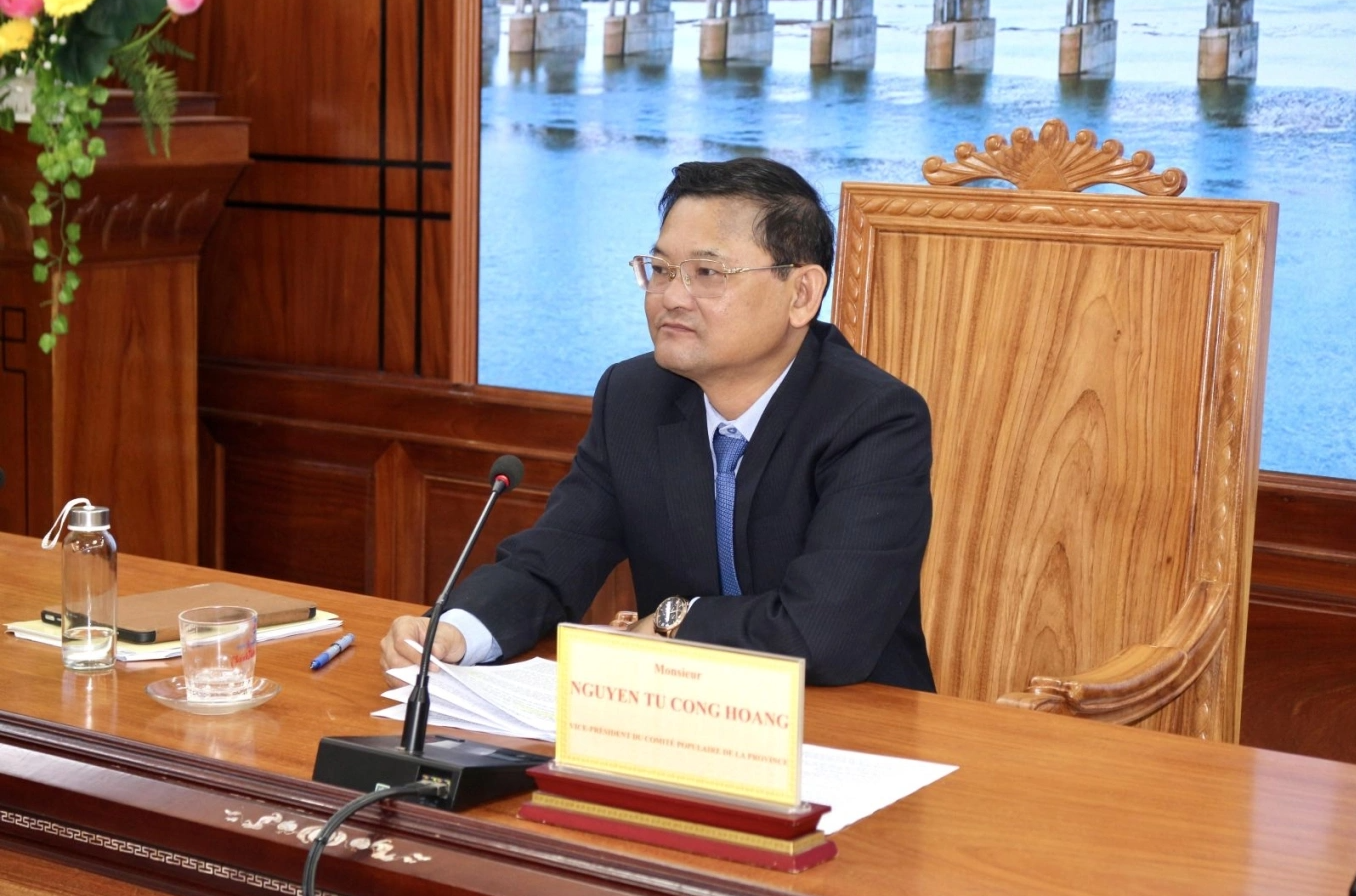The Rhin-Meuse River Basin Water Agency (France) has supported Gia Lai province in implementing Phase 1 of the Integrated Water Resources Management Project in Vietnam, focused on the Kon River basin.
The project has an estimated total budget of about VND 14.6 billion (EUR 483,060), of which France contributes 80% and Gia Lai province about 20%. The cooperation agreement was signed in March 2025.
Phase 1 of the Kon River Basin Integrated Water Resources Management Project will be carried out in five localities: Vinh Thanh, Tay Son, Tuy Phuoc districts, An Nhon town, and Quy Nhon city, with a total budget of more than EUR 480,000 and an implementation period through 2026. The project consists of five components: a joint coordination agreement, operational management, water resources baseline studies, development of a water resources information system, and capacity building in water resource management.
 Vice Chairman of the Gia Lai Provincial People’s Committee Nguyen Tu Cong Hoang. Photo: Giai Lai People's Commitee.
Vice Chairman of the Gia Lai Provincial People’s Committee Nguyen Tu Cong Hoang. Photo: Giai Lai People's Commitee. The project pursues four objectives: coordinating with other projects already under implementation in the area; improving water resource management and operations; managing water resource information; conducting studies to assess the characteristics of the Kon River basin’s water resources; and strengthening local officials’ management capacity through specialized training.
To date, Gia Lai’s departments, sectors, and localities have coordinated with the consulting unit to complete Deliverable No. 1 and are expected to finalize Phase 1 in September 2025. At the same time, they have reported on data gaps that need to be addressed in Phase 2, particularly in groundwater, water quality, land use, and non-point pollution sources.
Vice Chairman of the Gia Lai Provincial People’s Committee, Nguyen Tu Cong Hoang, emphasized that the agreement to implement Phase 1 of the Kon River Basin Integrated Water Resources Management Project holds significant meaning, marking a new step in bilateral cooperation. The project aims at sustainable water resource management and use, bringing tangible benefits to communities within the project area.
Upon completion, the project will provide a comprehensive picture and full assessment of the current status of water management in the Kon River basin. This will help propose appropriate and effective management solutions, thereby strengthening the leadership, administration, and water resource management capacity of agencies, units, and localities across the province.
This project is part of the Framework Cooperation Agreement on developing joint actions in integrated water resources management, signed in June 2022 between the People’s Committee of Binh Dinh province (now Gia Lai) and the Rhin-Meuse River Basin Committee and Water Agency.